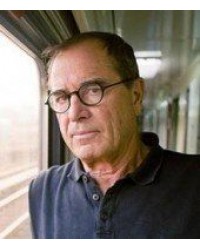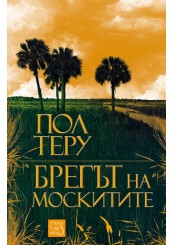Paul Theroux

Paul Edward Theroux (born April 10, 1941) is an American travel writer and novelist, whose best-known work is The Great Railway Bazaar (1975). He has published numerous works of fiction, some of which were adapted as feature films. He was awarded the 1981 James Tait Black Memorial Prize for his novel The Mosquito Coast, which was adapted for the 1986 movie of the same name.
Theroux was born in Medford, Massachusetts, the son of Catholic parents; his mother, Anne (née Dittami), was Italian American, and his father, Albert Eugene Theroux, was French-Canadian. His mother was a grammar school teacher and his father was a salesman for the American Leather Oak company.
Theroux was educated at Medford High School, followed by the University of Maine, in Orono, (1959–60) and the University of Massachusetts Amherst, where he obtained a B.A. in English in 1963.
After he finished his university education, Theroux joined the Peace Corps in 1963 as a teacher in Malawi. A new program, the Peace Corps had sent its first volunteers overseas in 1961. Theroux helped a political opponent of Prime Minister Hastings Banda escape to Uganda. For this Theroux was expelled from Malawi and thrown out of the Peace Corps. He was declared persona non grata by Banda in Malawi for sympathizing with Yatuta Chisiza. As a consequence, his later novel Jungle Lovers, which concerns an attempted coup in the country, was banned in Malawi for many years. He moved to Uganda to teach at Makerere University, where he wrote for the magazine Transition.
While at Makerere, Theroux began his friendship with novelist V.S. Naipaul, then a visiting scholar at the university. During his time in Uganda, an angry mob at a demonstration threatened to overturn the car in which his pregnant wife was riding. This incident may have contributed to their decision to leave Africa. The couple moved with their son Marcel to Singapore. After two years of teaching at the National University of Singapore, Theroux and his family settled in the United Kingdom, first in Dorset, and then in south London. By then, Theroux had fathered two sons, Marcel and Louis.


